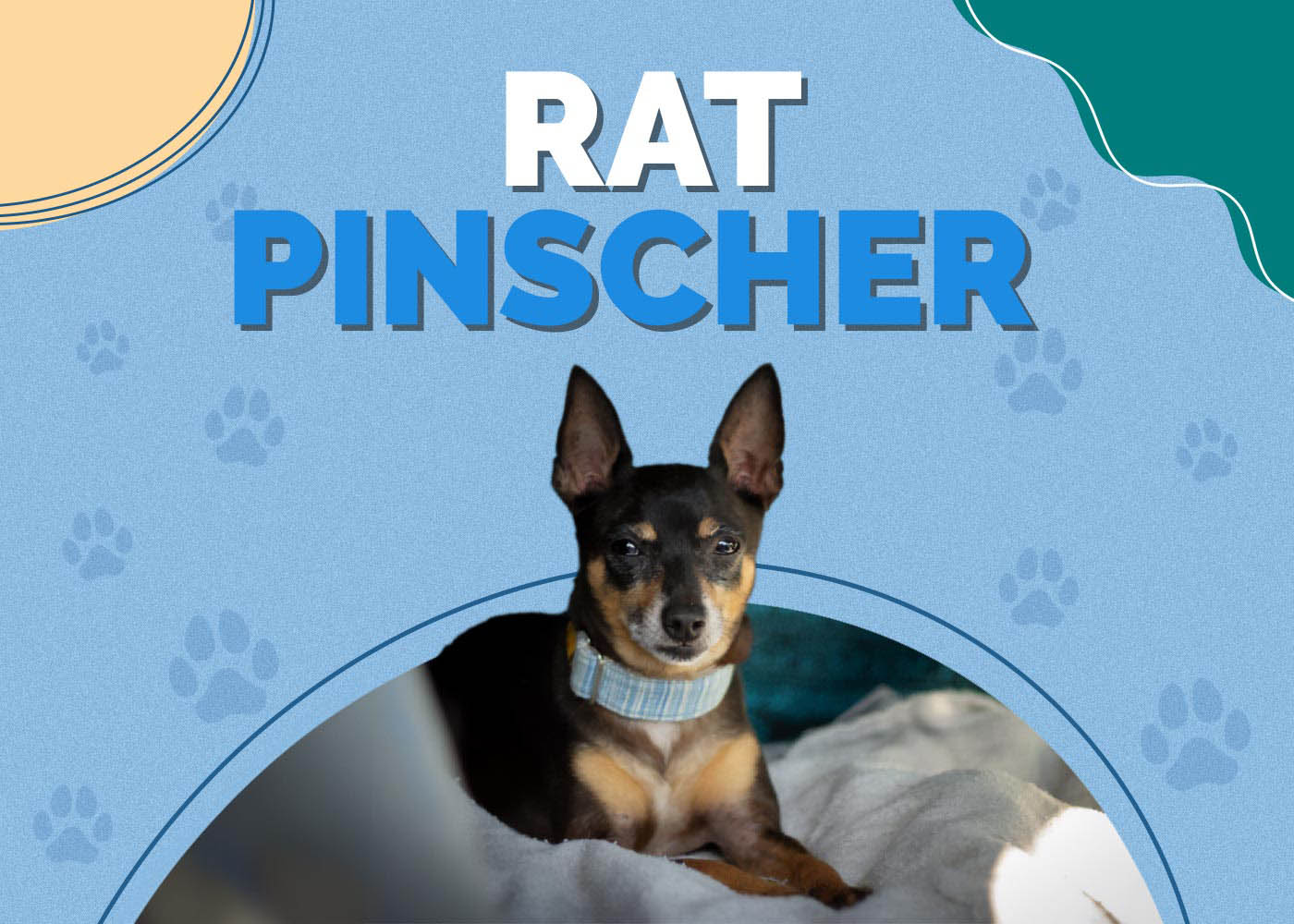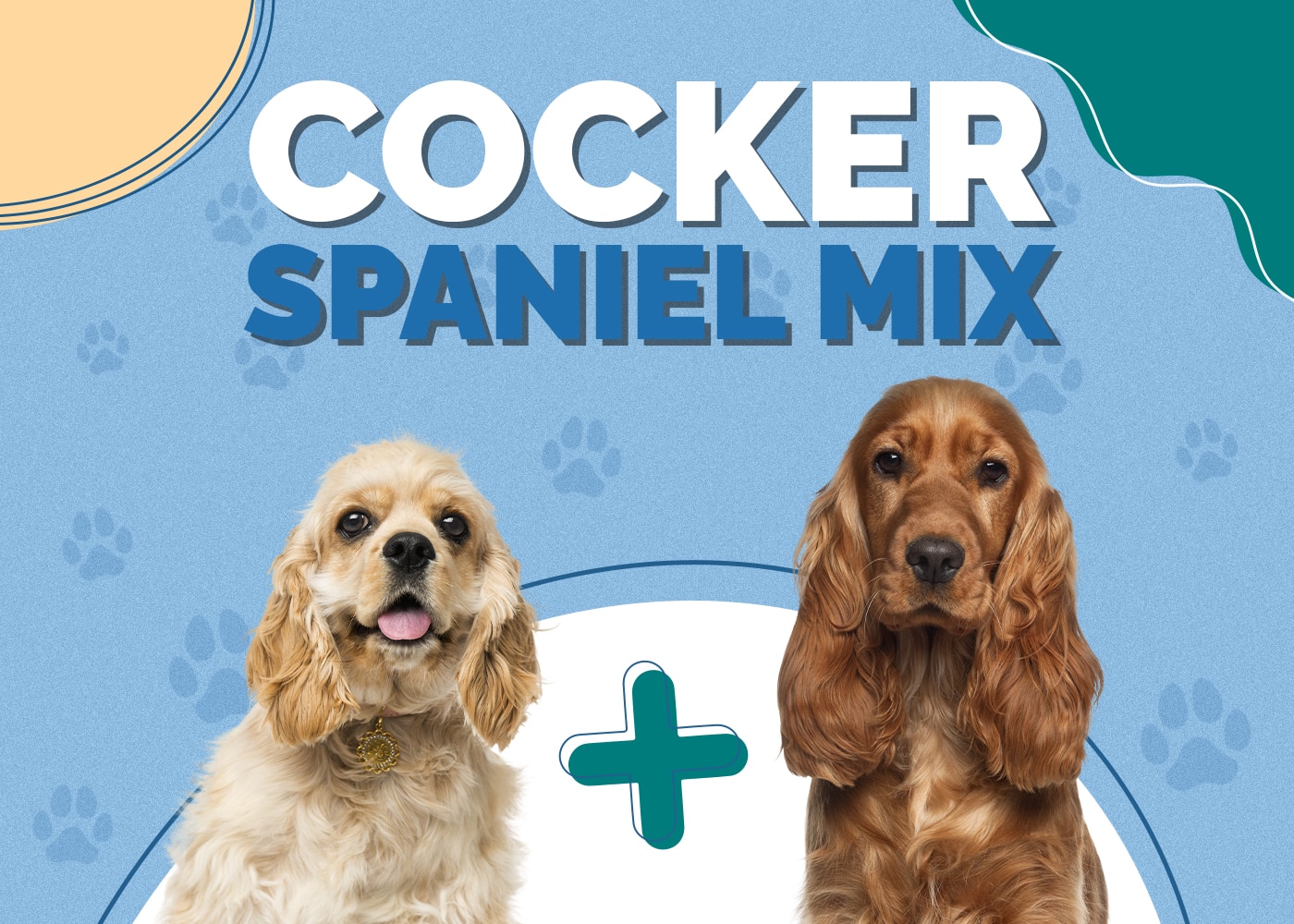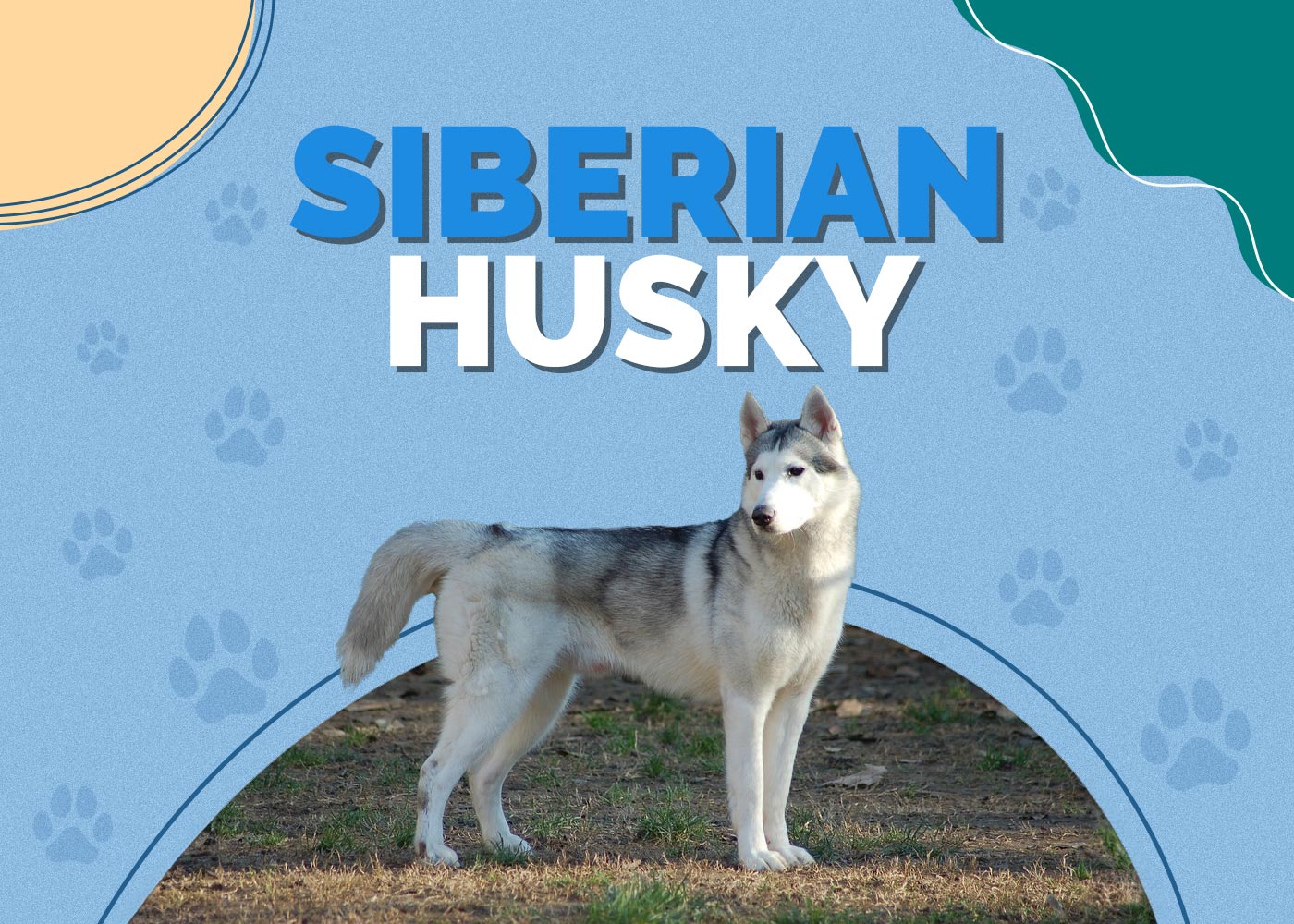Miniature Golden Retriever Breed: Info, Pictures, Puppies, Traits & Facts

Updated on
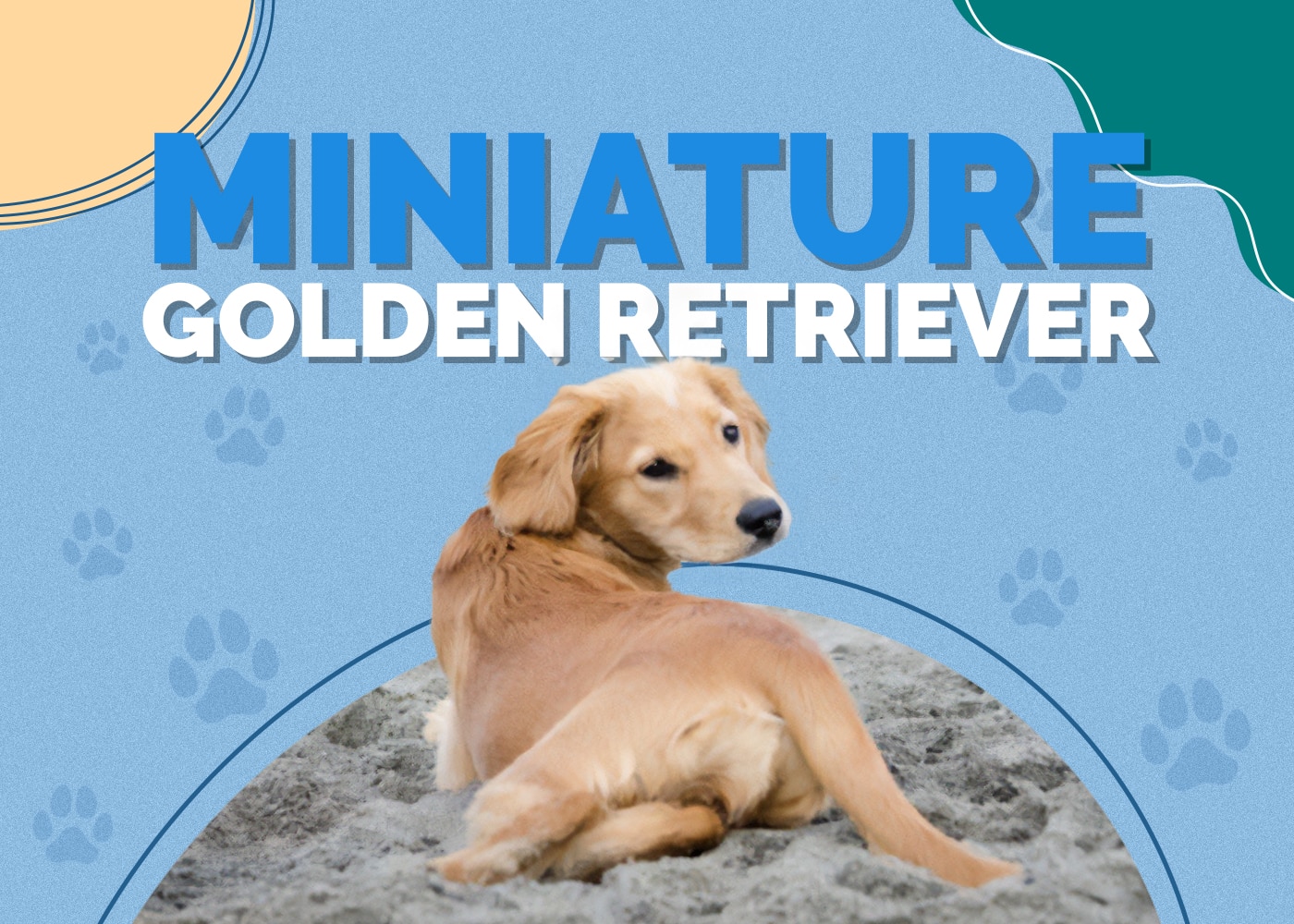
Height:
14–20 inches
Weight:
20–45 pounds
Lifespan:
10–15 years
Colors:
Golden
Suitable for:
Anyone who wants a Golden Retriever but doesn’t have space for a big dog; families looking for a non-shedding pet
Temperament:
Playful, energetic, alert, easy to train, comforting, people-pleaser
Golden Retrievers were first bred in Scotland in the 19th century, where they were popular among upper-class sportsmen who enjoyed shooting ducks as a hobby. In addition to being able to “retrieve” trophy birds from thick underbrush (hence, the name), Retrievers loved running and swimming as much as any human athlete.
Time has passed and our taste in dogs has changed. Nowadays, Golden Retrievers are beloved for their cheerful attitudes and loyal companionship, but they’re also just too big for some households.
Enter the Miniature Golden Retriever, one of the newest dog breeds currently being sold—in fact, so new, it’s not yet registered with the American Kennel Club. They’re most often created by crossing a Golden Retriever with a smaller breed, especially a Poodle or Spaniel.
If you love Golden Retrievers, but can’t fit 70 pounds of gun dog into your life right now, the Miniature Golden Retriever could be your perfect companion. In this article, we’ll tell you everything you need to know about buying, raising, and caring for these unique miniature dogs.
Miniature Golden Retriever Puppies
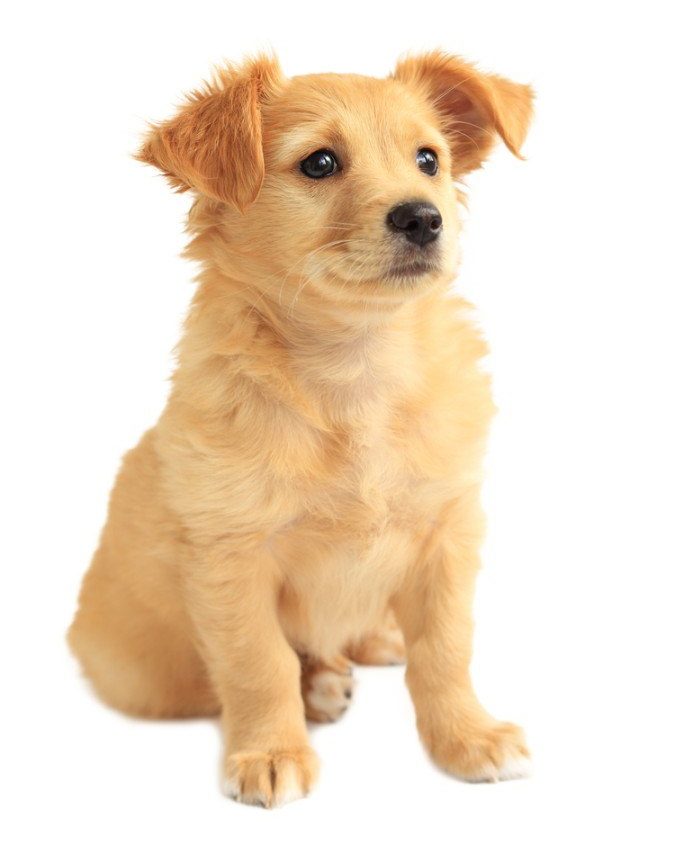
Golden Retrievers are some of the world’s most charismatic dogs, and their miniature form is no exception. When you bring one home, it’ll instantly become the star of your family life, loving the chance to play, run, and cuddle with its new best friends.
Be warned, though: Miniature Golden Retrievers aren’t stuffed toys, however much they might look like it. These dogs are endless fountains of energy, especially as puppies, and their owners should be prepared to be as active as they are.
Since Miniature Golden Retrievers aren’t yet officially registered with the AKC (though they are certified with some lesser kennel clubs), be aware that there is not yet a standard crossbreed to create them. One parent will always be a purebred Golden Retriever, but the other can be a Teacup Poodle, a Cocker Spaniel, or one of several other tiny breeds.
What this means for you is that Miniature Golden Retriever puppies vary widely in personality. It’s critically important to buy through a well-regarded breeder and to meet the puppy and its parents before you purchase.
3 Little-Known Facts About the Miniature Golden Retriever
1. They have many names.
Another consequence of being a newer, less-official breed is that there’s no standard name for the Miniature Golden Retriever. In various places, they’re known as Comfort Retrievers, Golden Cavaliers, Golden Cocker Retrievers, Toy Golden Retrievers, or Petite Golden Retrievers.
2. Breeders are trying to get more Golden Retriever genes into the mix.
Since the exact formula for a Miniature Golden Retriever is still being worked out, breeders are working on raising puppies that express more traits of the Golden Retriever parent. The goal is 75% Golden Retriever, and 25% something else.
3. Golden Retrievers are among America’s favorite dogs.
In surveys, Golden Retrievers almost always come out at or near the top of the popularity list. That’s why the Miniature Golden Retriever is so important—it helps more people get access to this beloved breed.

Temperament & Intelligence of the Miniature Golden Retriever 🧠
Miniature Golden Retrievers are a lot like their full-sized parents in temperament. They love to be the center of attention, run and play fetch, and make their people happy. They’re also easy to train and play nice with other dogs.
That said, they’re more than just shrink-rayed clones of regular Golden Retrievers. Each Miniature Golden will inherit traits from its other parent, usually a Poodle or Cocker Spaniel. The best way to learn about each puppy’s temper is to play with it at the breeder and meet both of its parents.
Miniature Golden Retrievers are highly intelligent and like to be active. They’re best for families who can spend a lot of time walking and playing every day. They’re also incredibly loyal, sticking by you for life once bonded—which makes them surprisingly good watchdogs, despite their not-exactly-intimidating stature.
Are These Dogs Good for Families? 🏡
For the most part, they make wonderful family pets, but you should keep a few things in mind. First, they’re sometimes barkers, especially when the doorbell rings. Second, if one of the parents was a Cocker Spaniel, some Miniature Golden Retrievers have been known to bite. Luckily, no matter who its parents were, these behaviors can be trained out.
Does This Breed Get Along with Other Pets? 🐶 😽
With a bit of supervision, Mini Golden Retrievers are easy to socialize with other dogs. Like their big counterparts, they’re also good with cats, but it can take a bit more work if either the cat or the Miniature Golden Retriever is naturally skittish.
Things to Know When Owning a Miniature Golden Retriever:
Food & Diet Requirements 🦴
Miniature Golden Retrievers like to eat, and they’re vulnerable to obesity if fed too much. A full-grown Miniature Golden needs about 2½ cups of dry food every day.
All dogs benefit from a high-protein diet with food made from real ingredients. Avoid dog foods that rely on by-products and gluten meals, and make sure your dog always has clean water available.
Exercise 🐕
Like a full-size Golden Retriever, a Miniature Golden Retriever loves getting exercise, being outside, and most of all, running. Fetch is their favorite game—it’s literally what they were born for, after all. They’re also huge fans of swimming.
Miniature Goldens do best with half an hour to an hour of walks every day, with extra time spent playing. This isn’t a breed you can take home and forget about. A Miniature Golden Retriever will always remind you when it’s time to play.
Training 🦮
Miniature Golden Retrievers are eager to do well in training. It combines two of their favorite things: exercise and making their humans happy. On top of that, all of its potential parents are extremely smart, so any Miniature Golden will have the smarts needed to ace obedience school.
Positive reinforcement is the best way to train a Miniature Golden Retriever. Punishing them or yelling at them might solve the immediate problem, but in the long term, it stresses them out and makes them less happy to listen to you.
Instead, when your Miniature Golden Retriever does something you don’t like—jumping on a delivery man, say, or barking at the doorbell—the key to training them is redirection. It’s what all sorts of parents do in nature: get their unruly children to focus their energy on something healthier. Bring out a toy or a treat, and make it clear to your Miniature Golden Retriever that they only get it if they stop barking.
As always, the younger the dog is when you start training, the more effective it will be.
Grooming ✂️
All Golden Retrievers, pint-sized or otherwise, shed their winter coats when the weather warms up. While Miniature Golden Retrievers scatter relatively little dander overall, they still need to be brushed daily to keep their coats from matting.
Health Conditions ❤️
Unfortunately, it’s not yet clear whether “hybrid vigor”—the idea that mixes and mutts are healthier than purebreds—applies to Miniature Golden Retrievers. They do have a longer life expectancy than many bigger dogs. However, you should still watch out for these health conditions.
All Miniature Golden Retrievers: Hypothyroidism, dysplasia of the hip and elbow joints, lymphoma, obesity
Poodle parent: Cataracts, diabetes, bloat
Cocker Spaniel parent: Cardiomyopathy, allergies, kidney stones
Male vs Female
Physically, the only difference between males and females of full-grown Mini Golden Retrievers is that females tend to be on the slightly shorter, lighter end of the spectrum. There’s still significant overlap, though.
Since the Miniature Golden Retriever is a breed with a wide range of temperaments, individual dogs’ personalities have a lot more influence on their behavior than their gender. So long as your new puppy is spayed or neutered, gender won’t affect much at all.
Final Thoughts
Miniature Golden Retrievers are new on the scene, but we’re happy to see them: it’s great that breeders are putting in the effort to make America’s most popular dog available to people who otherwise might not get to have that joy in their lives.
Remember, a Miniature Golden takes work. Don’t expect it to be a couch potato. If you treat it right, though, you’ll have a workout partner and cuddle buddy for life.
Featured Image Credit: Janet Waldbillig, Shutterstock



